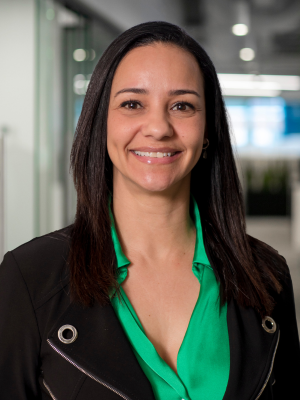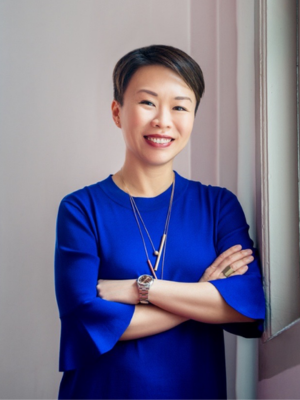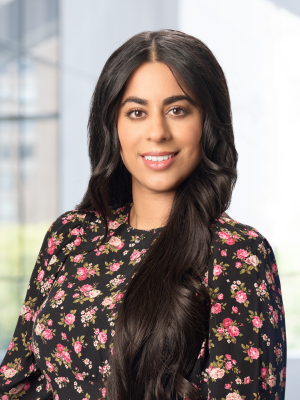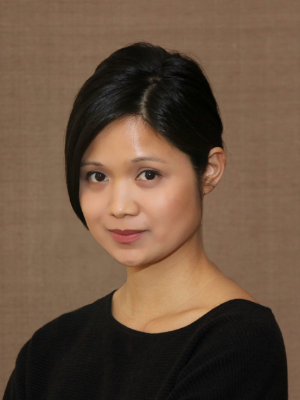 “I want to continue working on solutions that create a better future for generations to come,” says Daniela Shapiro. “That way, when I eventually hang up my boots, I’ll feel fulfilled knowing I helped move the ball forward.”
“I want to continue working on solutions that create a better future for generations to come,” says Daniela Shapiro. “That way, when I eventually hang up my boots, I’ll feel fulfilled knowing I helped move the ball forward.”
For Shapiro, every step of her journey has been about aligning her professional success with a broader mission to leave the world better than she found it. She shares how she aims to create a meaningful legacy through sustainable energy investing, empowering the next generation of leaders, and cultivating leadership growth that is rooted in awareness and purpose.
Powering a Purposeful Journey
Energy has defined Shapiro’s career and character. She initially approached energy in its most literal sense. “I went to college with the goal of working as an electrical engineer,” she recalls, “but I didn’t work a day in that field.” Her trajectory shifted when a professor, consulting for a private equity firm, offered her an internship. That pivotal opportunity introduced her to the world of energy finance, steering her away from the technical aspects of engineering and into the broader financial landscape of the energy sector.
The first decade of Shapiro’s career spanned private equity, a role with the Brazilian government during its energy market deregulation, and project financing at ABN-AMRO. While she started out working in oil and gas, she eventually pivoted toward renewable energy.
“I was nearly finished with my MBA at Northwestern University, which was part of an agreement I had with the bank to gain international experience, and I was expecting to return to Brazil. When they offered me the chance to be part of a newly created group focused on financing renewable energy, I jumped at it. That’s when I shifted my career fully to renewables and climate-related financing solutions.”
The 2009 financial crisis prompted another significant transition, leading Shapiro from banking to energy development. She held several executive roles, including most recently CFO of Guzman Energy. Over two decades of financing and developing energy projects, Shapiro cultivated a strong professional network that ultimately opened the door to her current position at HASI, a leading U.S. climate investment firm based in Annapolis, Maryland.
“Susan Nickey, who is our EVP and Chief Client Officer, has been an industry friend for almost twenty years, and also a mentor and advocate. When HASI was going through a planned leadership transition, I was thrilled that she put my name in the hat.”
Now, two years into her role as a Senior Managing Director, she is responsible for growing the company’s investments in distributed solar project market and expanding solutions for broader onsite and as-a-service offerings. Shapiro continues to thrive. Her blend of technical expertise, financial insight, and passion for sustainability positions her to tackle the complex challenges of clean energy, driving solutions that align with her values and vision for a more sustainable future.
Driven by Determination, Strengthened by Authentic Connections
Shapiro cites her determination and drive as key factors behind her success. “When I set my mind to something, I don’t stop until I achieve it. It may not be perfect or painless, but I don’t give up easily,” she says. This mindset has driven her to excel in demanding environments and to adapt to new challenges throughout her career.
However, Shapiro notes that sheer determination is not enough to keep moving up the ladder—equally important are the interpersonal skills and energy one brings to relationships.
“I’ve been fortunate to have people throughout my career who believed in me — cheering me on, offering advice and feedback, and making connections without me even asking. It’s incredible to have successful individuals in their own fields freely share their time and insights. For a long time, I questioned why I was lucky enough to receive that spontaneous support when others might not. But I’ve come to believe it’s about the energy you have within—the loyalty mentality that resonates with people and inspires them to invest in your success.”
Fostering authentic connections while building a professional network is another essential element of Shapiro’s success. She underscores the importance of quality over quantity and recalls how the 2009 banking crisis highlighted the power of having those genuine connections.
“People I didn’t expect to care went above and beyond to help, making introductions and offering referrals,” she says. “That experience showed me that people will be there for you if they believe in you and feel you will be there for them…it’s about knowing who your tribe is and having genuine relationships.”
Leadership Growth Through Adaptation and Coaching
As Shapiro’s career took her higher up the ladder of leadership, she found it increasingly important to evolve her leadership style, particularly as the landscape has changed since her early days in investment banking.
“Back then, the culture was hierarchal and purely bottom-line, with little emphasis on tailored motivation and individual circumstances,” she recalls. As she progressed, she recognized the importance of balancing her results-oriented mindset with softer skills.
“As I moved higher in my career, I recognized the value of awareness and empathy, understanding different perspectives, styles, and what motivates the current workforce as it’s different from when I was a young professional.”
Today, her leadership prioritizes open communication and constructive feedback. “I have been focused on rebalancing my ‘get things done’ upbringing with understanding how people receive and digest information, and how they can grow.”
Executive coaching has played a key role in refining Shapiro’s approach. “I worked with a coach for six months and it really helped me address blind spots and have the kinds of deeper conversations that catalyzed my growth.”
Coaching also taught her to embrace imperfection as part of the growth process. “As women, we often feel everything needs to be perfect before we act,” she observes. “But it’s about building momentum — get the first ball rolling and then the second and go from there. You have to embrace the process or risk giving up too soon.”
“I have a lot more work to do as a leader. And we should always feel there is plenty of work ahead of us. Progress is a happy day.”
Empowering the Next Generation
Shapiro’s career in renewable energy is driven by a profound sense of purpose.
“Once I entered this space, it became clear I wasn’t here by accident. It truly aligns with my values.” She continues, “I want to continue to work with solutions that create a better place for future generations.”
For Shapiro, collaboration and a shared sense of responsibility are key. “It’s about using my voice and building a network of collaboration that fosters the mentality of what we need to achieve. I will continue to lend my time, resources, and enthusiasm to others that are coming after, so that we keep moving the work forward.”
This focus on future impact naturally extends to her dedication to mentoring the next generation, especially empowering women in the workforce.
“I think an important legacy that we can all leave is to think about the younger generation—what they can learn from us and how we can be a helping hand to those that are just starting out.”
Shapiro acknowledges the unique challenges women face the higher they rise in leadership. “It requires sacrifices, and it’s not easy,” she notes, reflecting on her own struggles to balance work and motherhood. “There were times I felt like I wasn’t excelling in either role, but learning to silence those doubts was key to moving forward.”
By creating opportunities and fostering collaboration, Shapiro hopes to inspire a new generation of leaders who besides being highly competent in their fields, are also compassionate and committed to making a difference. “The earlier one understands the interplay of these skills, the earlier they will feel successful,” she says.
Living a Life of Meaningful Connections and Experiences
Outside of work, Shapiro’s life is centered on family and meaningful experiences. “I’m all about experiences, not things,” she says. She loves traveling, cooking, and exploring different cultures, using these activities to broaden her perspective and that of her children.
“Living in another country taught me to see the world through different lenses,” she says. “It’s not always about right or wrong but about acknowledging diverse viewpoints and finding common grounds.” This philosophy shapes how she raises her children. “We travel to show them that the privileged world we live in is just one piece of a much larger puzzle.”
These values don’t just shape her family life — they fuel her commitment to creating a better future. Whether it’s guiding her team or raising her children, Shapiro’s vision is clear: fostering excellence, empathy, collaboration, and a sense of responsibility to leave the world better for future generations.
By Jessica Robaire



